BIOSCI 109: 🎓Lecture 19 - Evo07 - Macroevolution 1: Phylogenetic Trees and tree-thinking
1/27
There's no tags or description
Looks like no tags are added yet.
Name | Mastery | Learn | Test | Matching | Spaced |
|---|
No study sessions yet.
28 Terms
Main important thing
phylogenetic not just about ancient histroy over year sbut apout epidemic of diseases aswelll
explain phylogny back in the days and about haeckl’s
was very general about phylogny back in the days explaining how everyone and everyhting was connnectied through this tree of life in the ORGING OF SPECIES.
Very artitstic.
some phyloginies had bias in them. (male on top)
Haeckl’s found the words phylogonies, ecology and phylum.
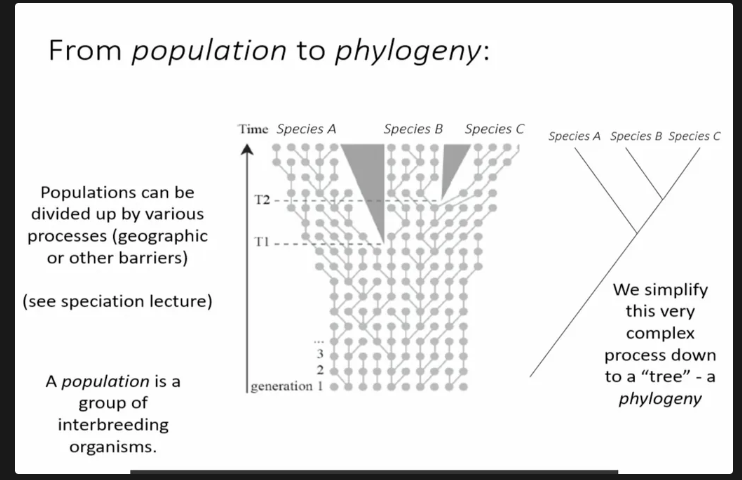
Modern idea about phyloginy.
that from gen 1 repoduciton happened and to a point speciation can occur interbreading with eatch oteher repoduing from gen to gen then isolated gene pools. this si called speciation.
zooming out is phylogyiny showed on the right(not looking at specific genes).
branching points is speciation points.
it is a proposal/hypothsis of what had happened.
their is also room for improvement for phyloginy.
want to get closer and closer.
What order speciation occured.
need to be replicatable and testable.
measure the amount of valid using real data.
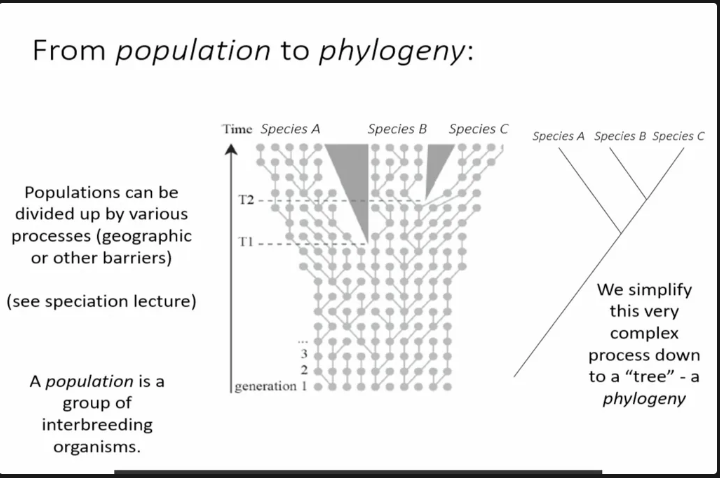
Phylogines important for recoding
Phylogines important for recoding macroevolutionary hisotry
example
dog examples.
3 major species.
the dark two extinct species.
the grey one lasted for a while (bear dogs bown crunching dogs.) dies two million years ago.
the new gen ( cayoteis) decend form minor dogs and due to dryer and colder envionments lighter boned dogs survived and resultin in north america becoming more grassland.
these diversivied where in 5mya they spreaded to asia and south america.
bubles represent number of species.
only found from fossils
both phylogneis get imielr results.
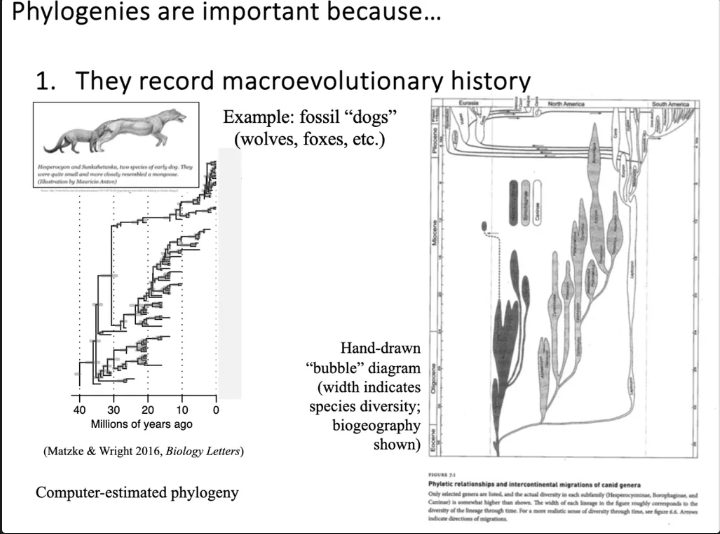
phylogenises are imporatn because
they record macroevolutionary histroy
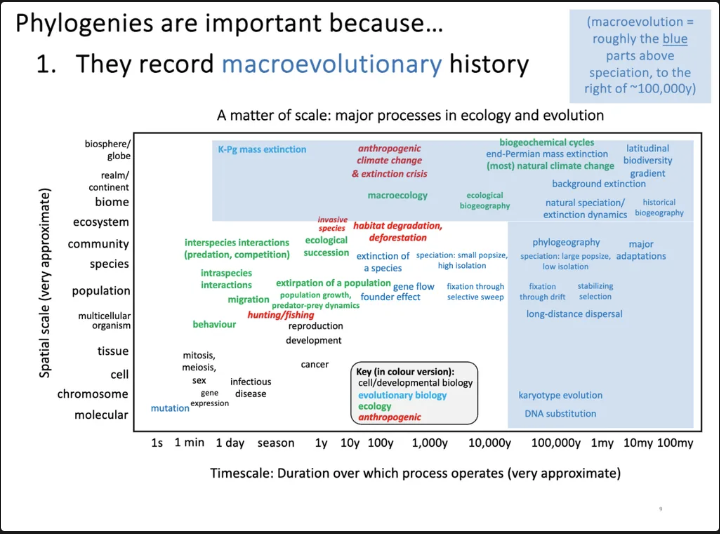
above the level of speciation. it take 100 to 1000 yrs but evolutionary above that level like births and death of species cross millions of years mutliple species are MACRO evolution.
anything in that phylogenic time scale is.
rough border between micro and macro is speciation.
Phylogenies are imporant because
they record biogergraphical history
explain
phylogenies are important because they record biogeorpahical history.
plate technocis (break up of continets). one importnat biogeorphical history is the break up of continents and some species rode around in these contientns and although these days we think dispersal is in many cases has been more dominant than, plate techonoics.
One application of phylogenics is to understand virusaand histroy.
another Biogerophy hisrotry is coronovirus.
shows hoe dleta strain is being the source of lockdonws and vaccination. orginal variants (pathogen) are extinct and new one are replacing the old virus. virus evolve due to our emmunse system. virus will evolve novel varients that keeps the virus alive.
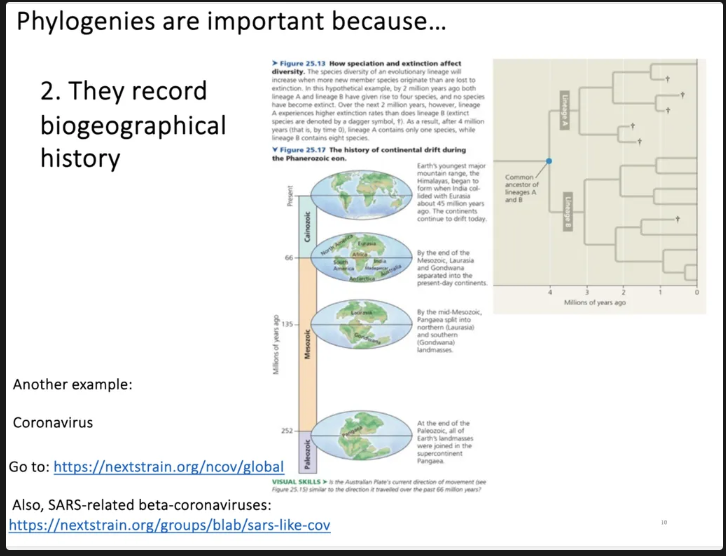
phylogines are imporatn because
they record the history of major transitions
phylogeneise are imporatn because
phylogies change txonomy by testing if taxa are monophyletic
explain
we try assing these species into.
naming a txon should represent a clade (descends form one ansestrical species).
these clades are monophyletic (one origin.)
taxon - any named group, species, genus family.
not monophyletic we revise taxonomy to mathch phylogeny.
if taxonmy is based on phylogeny they will beocme mroe stable in the future.
they should testable.

what is another key skill for exam
testing themonphyl of taxa.
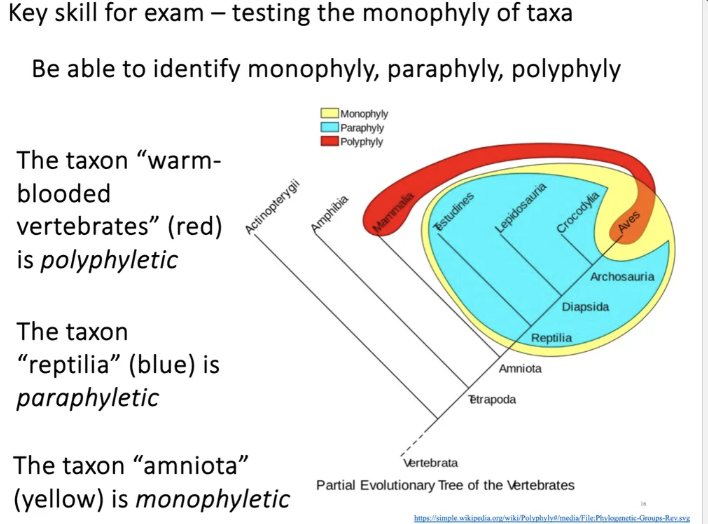
explain
tjis cladogram is a phylogen without absolute time infomation or branch lenghs meaning anything. just represent relationships between group.s
3 idenitifcation: monophyly, paraphyly, polyphyly.
monphylyic are = mammals fishs, turtles, crocylia.
birds= subgroup reptiles because birds are modified feathery dinasours, and dinasours sister group is crocadiles and the sister group to them is lizards and snake.
turle and torste is controvertial.
Mammals are sister group to all of them.
raptilia including aves then this wil be monophylic.
but if avys exlcuded from reptiles and birds are a class and reptiles are a class reptilesa and towo taxa arnt monophylic thos means that arnt natural group. meaning parophylitic group.
polyphyly = warm plooded animals so mammals and birds are warm blooded so polyphyly.
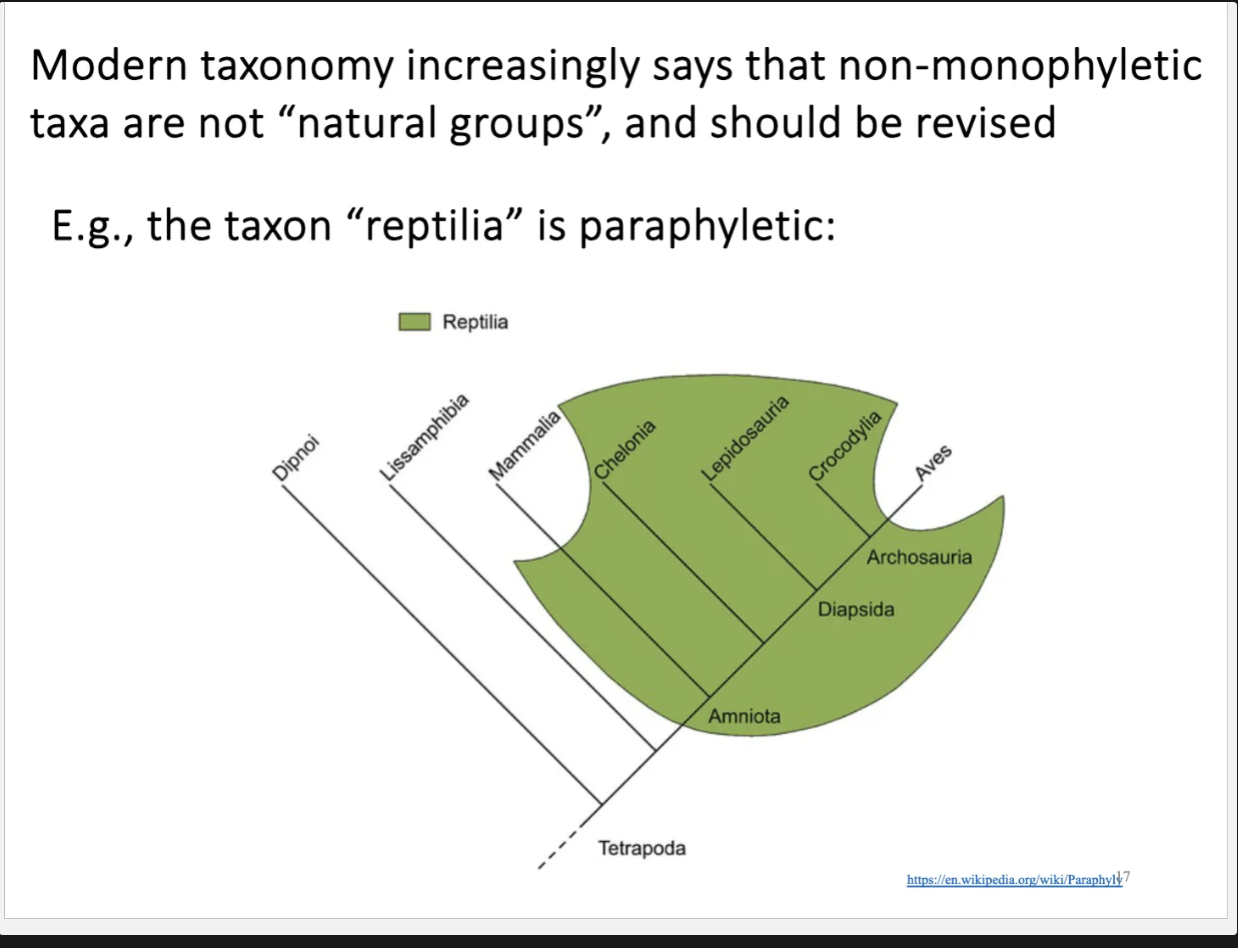
Another viertion.
mammals descend form reptiles.
but their are mammal like reptiles so when dow e change from mammal like reptile to reptils. these are question we when we usdont use meodern phylogenting.
these dayas we say that reptilia is an old term and not in phylogenitic terms.
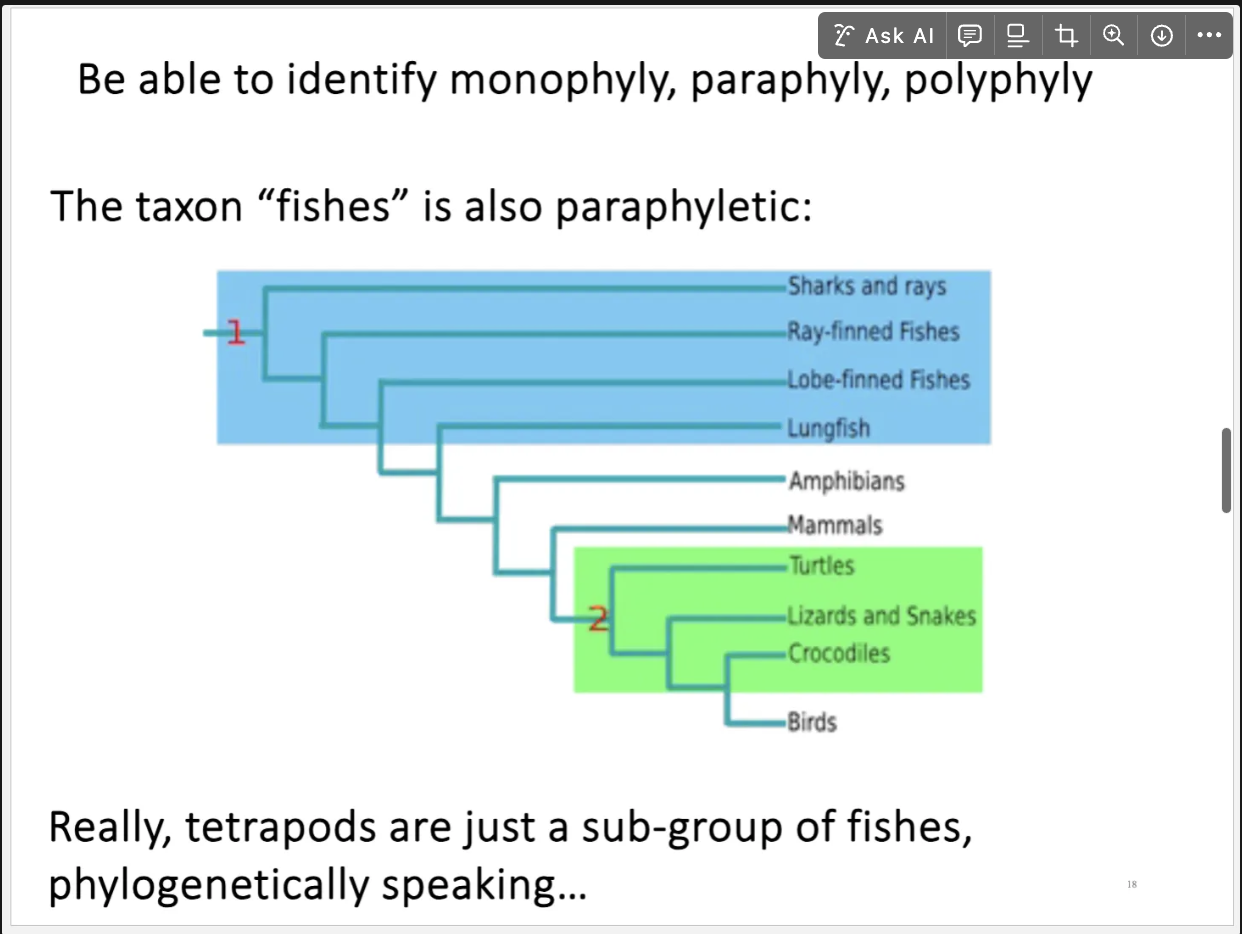
if fishes are a toxon the problem is that all tetrapods ambhibians mammls reptiles birds all of them are subgrounp of fishes.
we are more closely related to lung fish and lung fihs are more closely related to us.
well we are all hihgly modelfied fishes we can view it like this.
or say term fishes i s a common language term so represent the ansestrial states how we descend from water breathing aquatic creaters. but they don’t form natural group because one subgroup, of them terns into tetrapods and then into land vertabrates.
phylogenies are imporant because
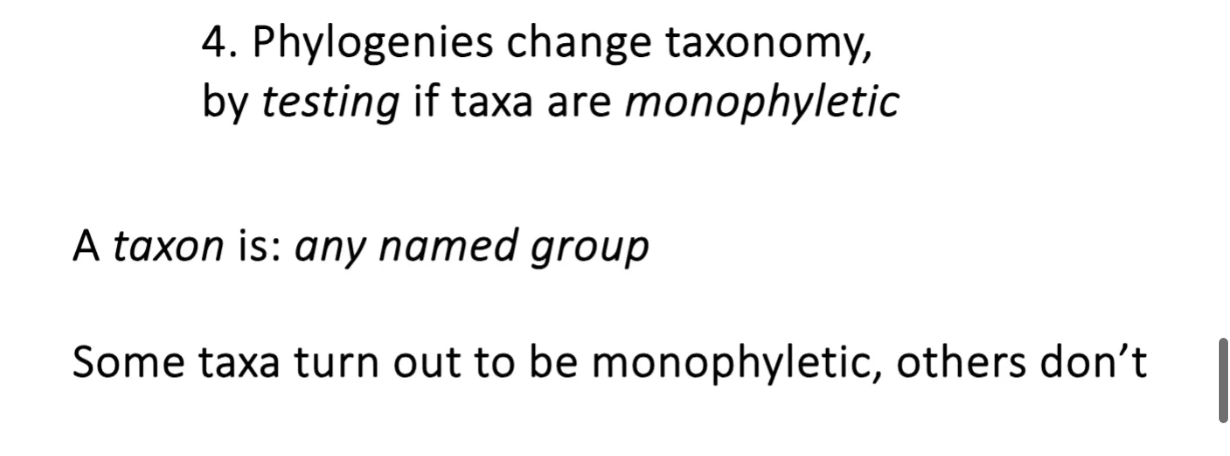
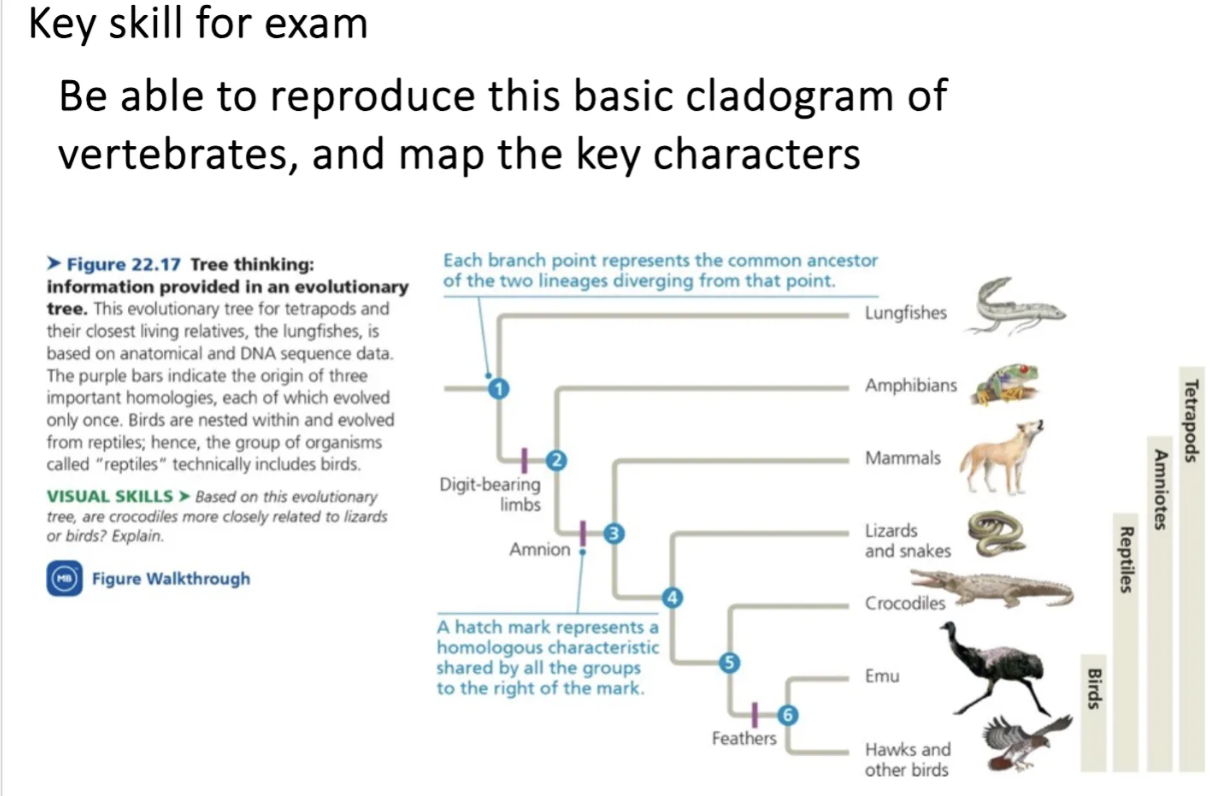
explain
A USE OF PHYLOGENISE
tree reading is something we pracitice in labs.
once an evolutionary tree we can interpet the hstory of different characters. when certain characteristic evolve and what steops.
eg. of birds.
emu and hawks have feathers meaning their common ansesters had feathers.
common ansesters for birds reptiles and mammals had an amnionic sack which is when eggs are bron in a sack.
all tetrapods amphibians, ansestrially had didget bearing limbs but some have lost limbs.
hormology

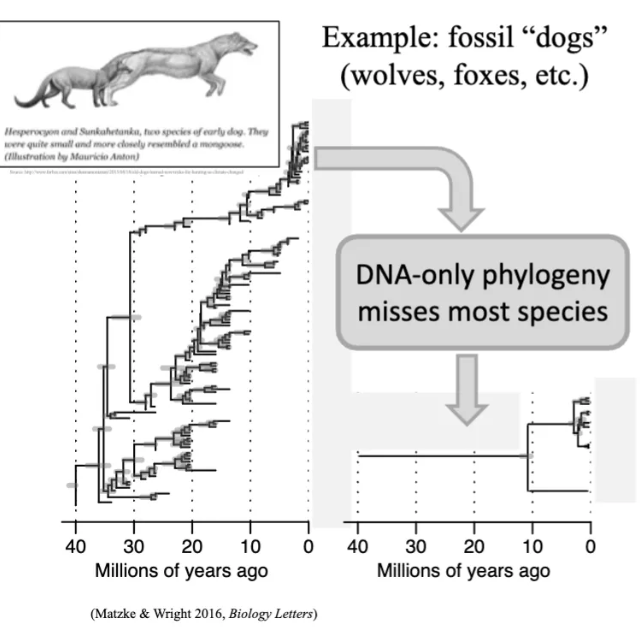
explain
different depiction = different pieces of information.
DNA will be a reduced tree. not all phylogiens show all species that occured in a group (some not found or extinct or slect special species).
cladogram is a simple depiction and shows the evolution and divered over millions of years. it shows the typology and shows relationshps without any absolute time evolution
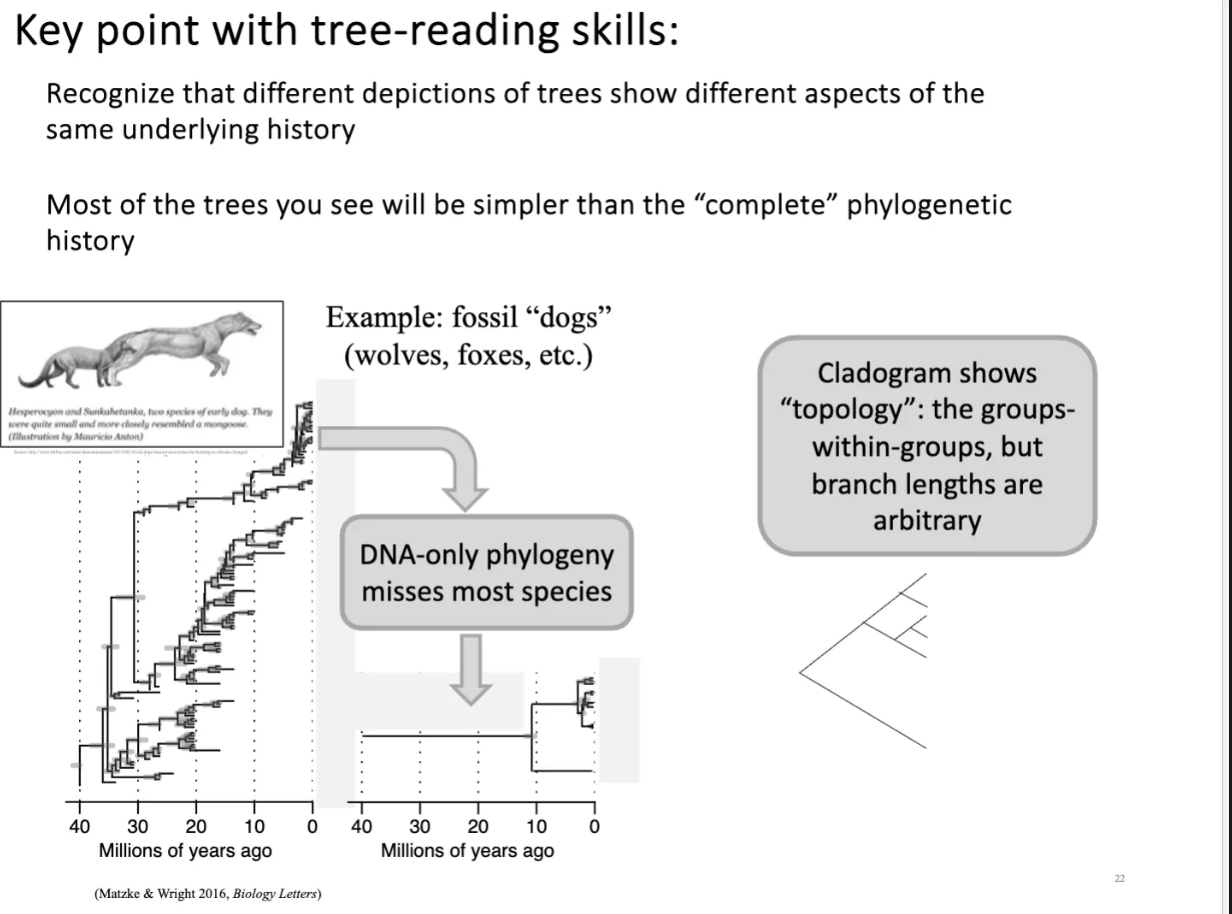
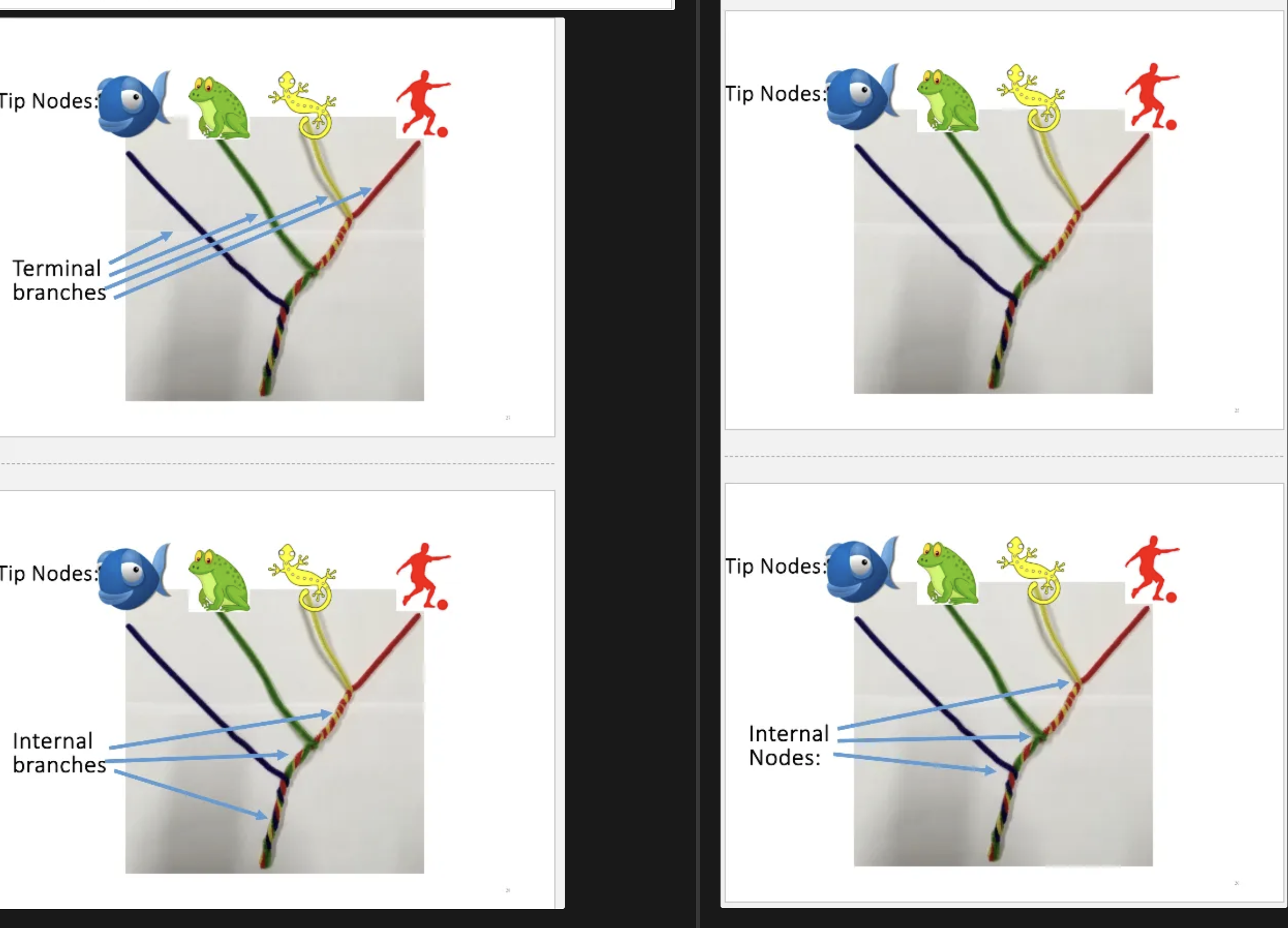
Main point from top picters is that the images are arbitrary meaning different ways of showing evolution doesnt have to be from fish to human.
termanolagy for talking about phyogny trees
tip nodes represent species
iternal nodes = speciation branching points.
termal branches = the branches tha tleadsto the tips the temrinas of the trees
interal branches.
root nodes the bodom node of the ansestrial species.
and branch leads to more didstant common ansesteors.
rotating nodes is an artic desition doesnt change grouping desicion.
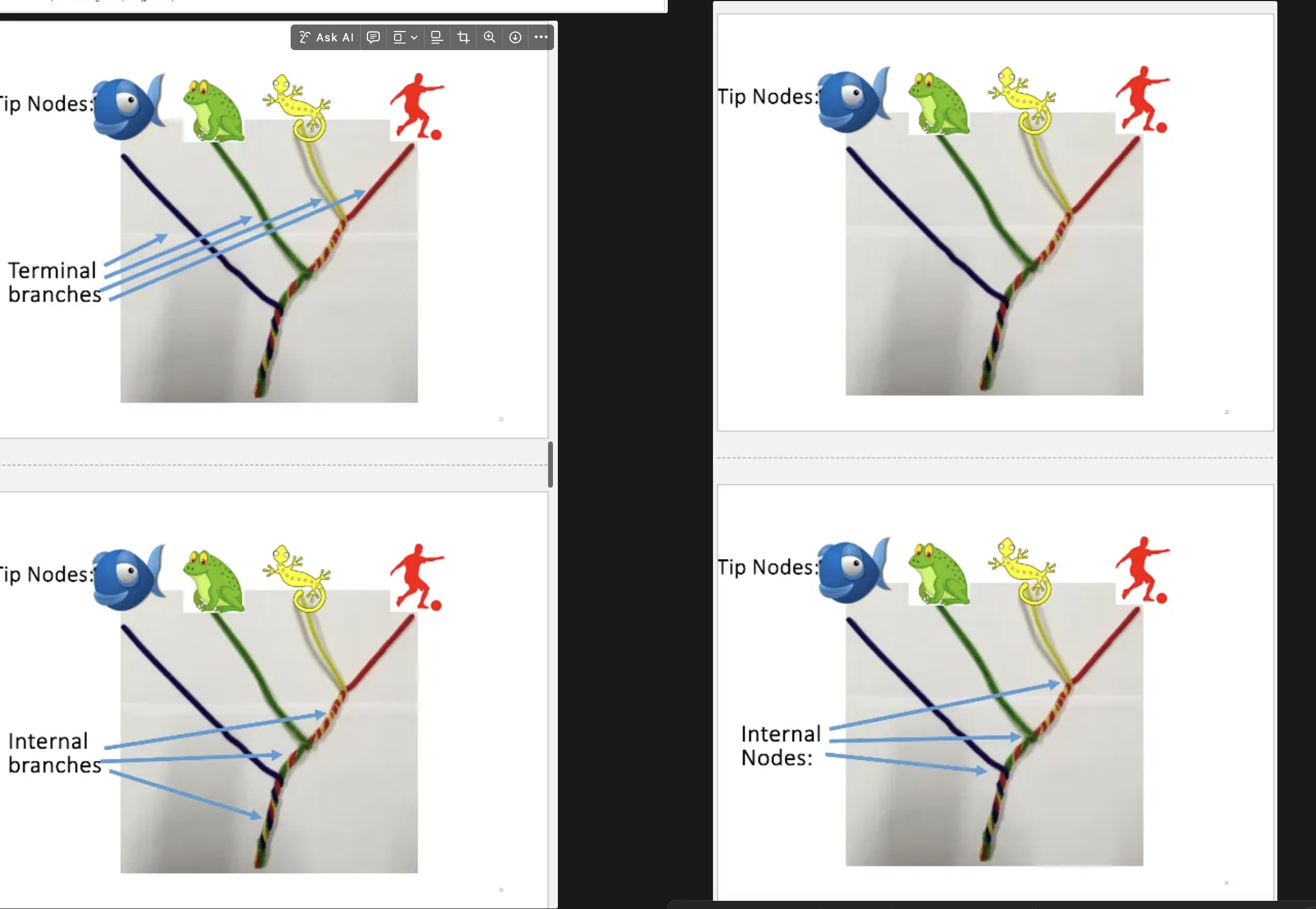
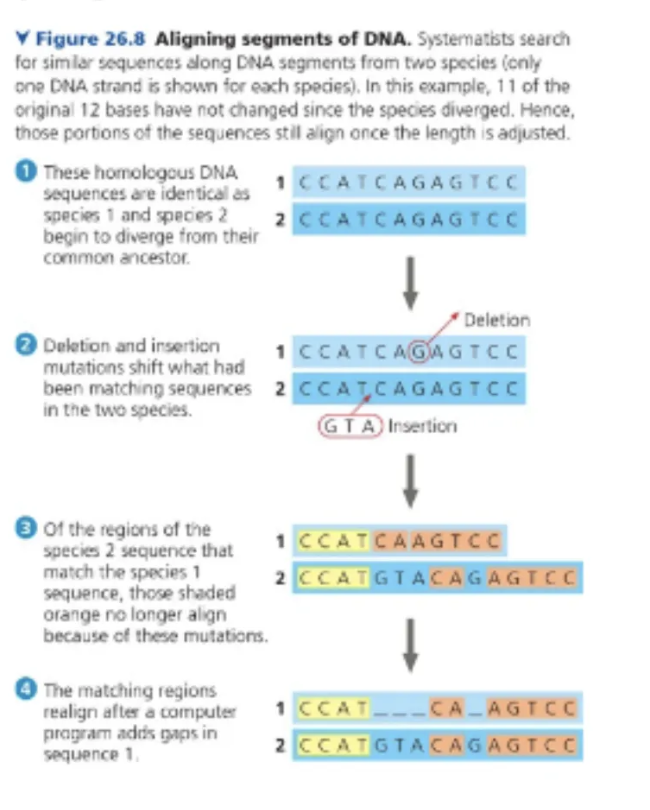
explain
how to get phylogeic tree in the first places
key thing: a character meaning characterisitng.
refers to objectivly idenfiable featue of an organism.
a character is something that you can look at an organims.
they are discrete character like how many eyes and figures can be quantifative or continues characters. one figure linger than another.
character data bassis of phylogines.
best sources of characters is dna for modern science.
they do this by allinging allels and genes closly realted species accan be done with eye.
you can computer can idenfity when sequance has changed.
like deletion and insertion. sometimes occasitonal errors do happen basses cna be changed and segmant inserted or deleted.
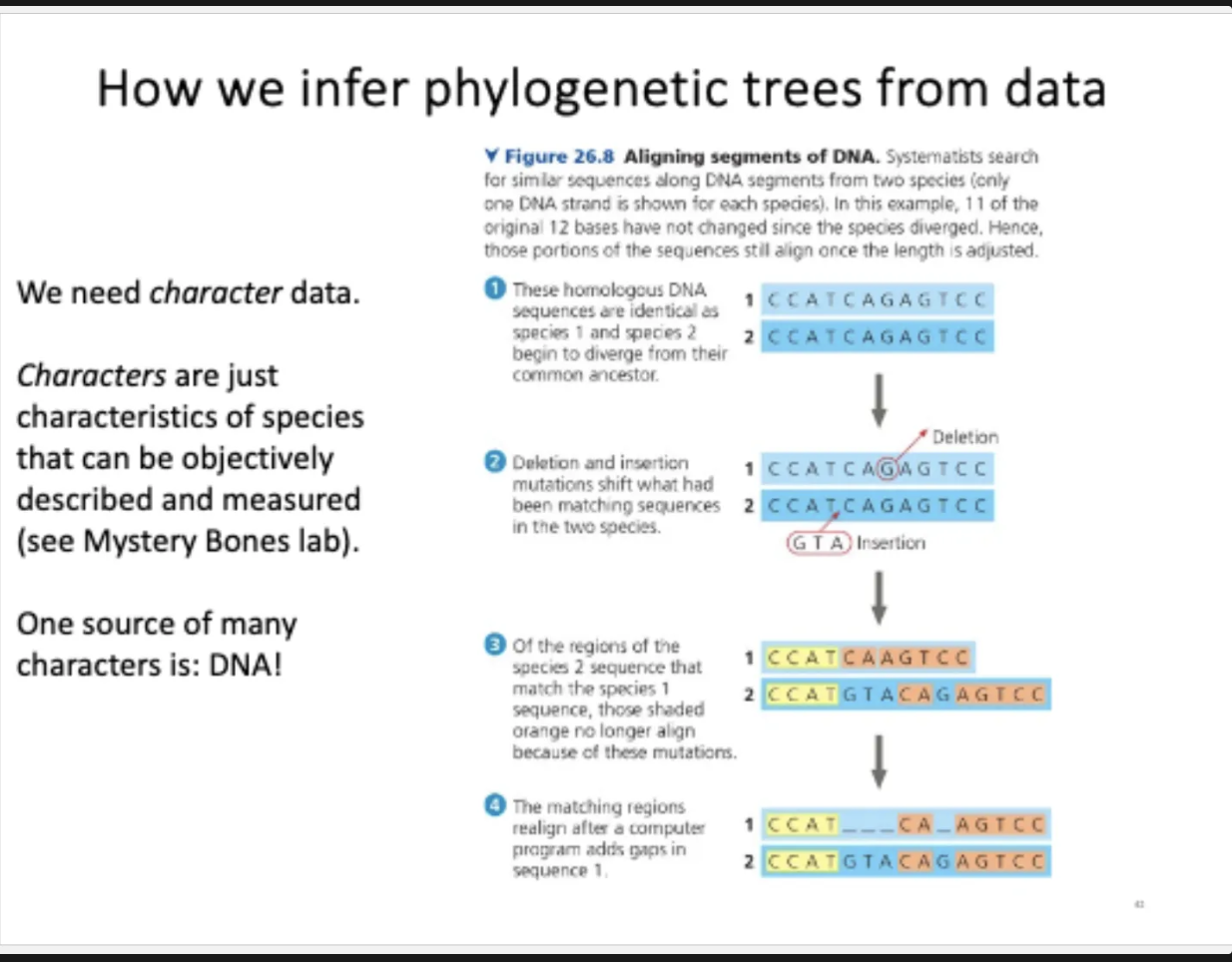
what are data for phylogeneics
homologus characters
explain abotu dna allingment and homologous characters.
dna allingment = homologus statment.
strong resons to think they are siiler because descend form common ansestors.
DNA gets replicated every generation. somtimes theri are small changes and these are copied sometimes.
hypothesis = if two species have simielr dna or number of fingure and is due to copying dna of ansesters.
shared homolgous charactersits we can tryp compare tree hypotheiss.
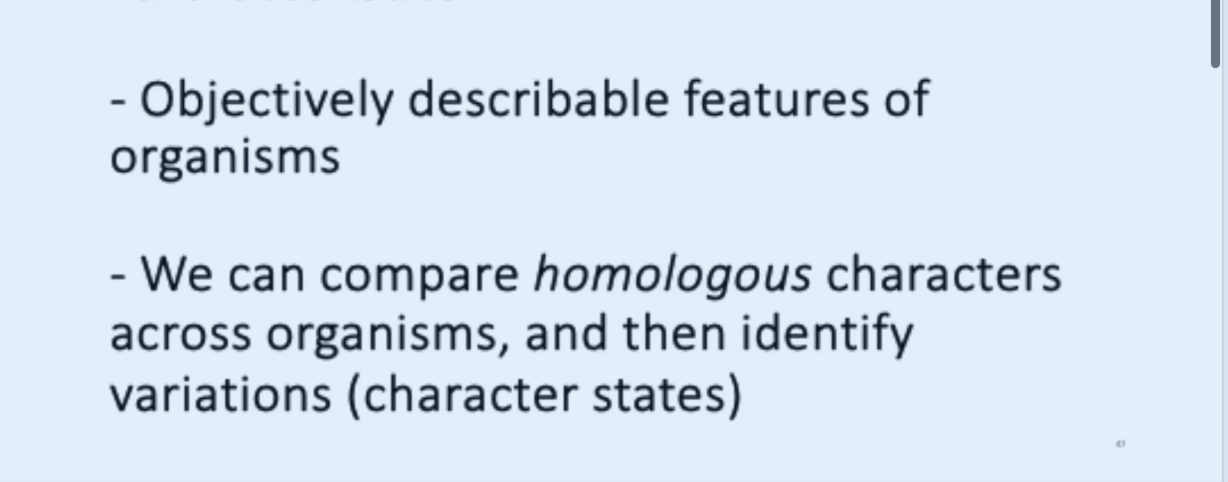
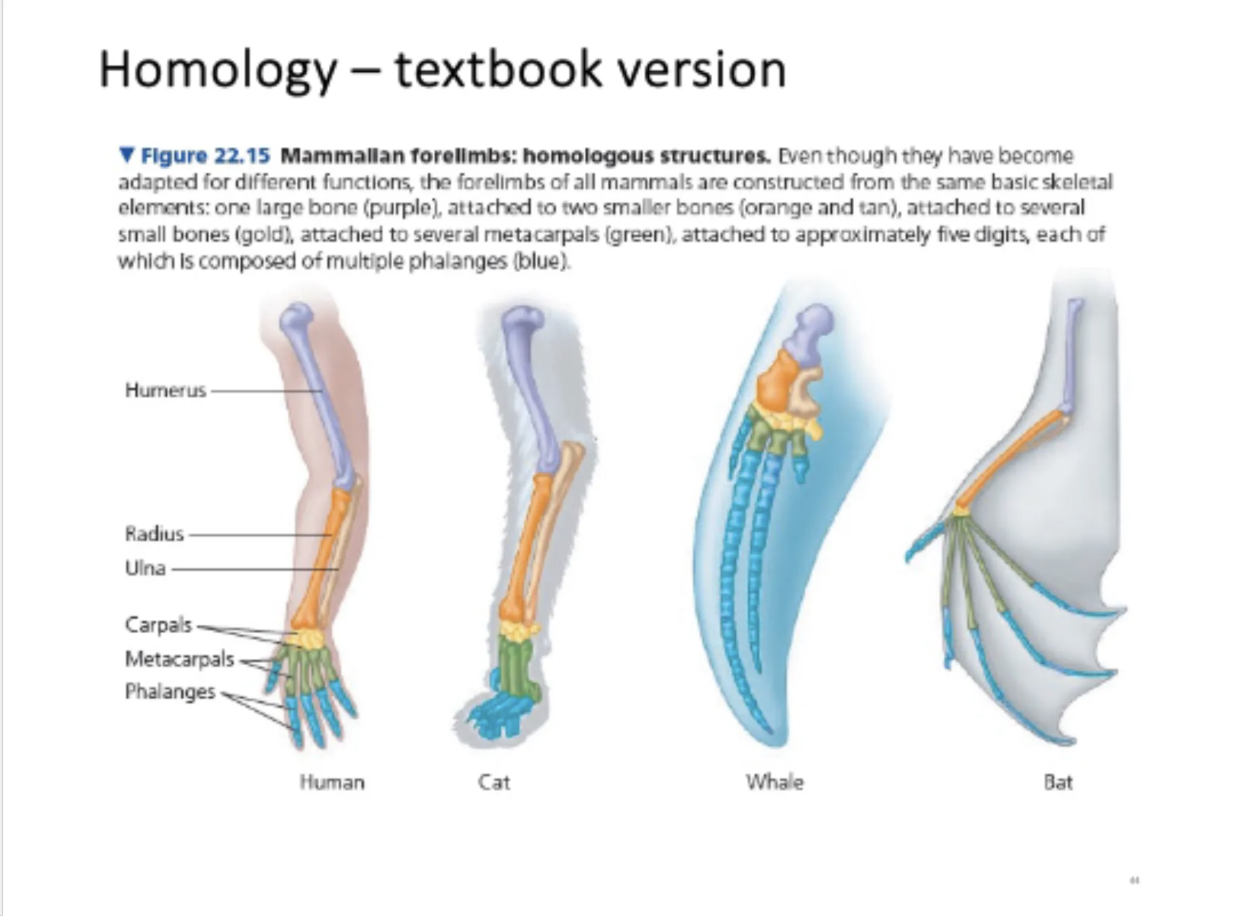
homolgy = similarities between two descending species form common ansesters
diverse function and adaptions for modes of movment but have early similer strucutres for their movment. bu tsimiler strucutre of bones.
we have humerus radius ex similer to cat whales and bats.
explaind by coping form coomon ansester by adaptions for their envioenmtns and different functions.
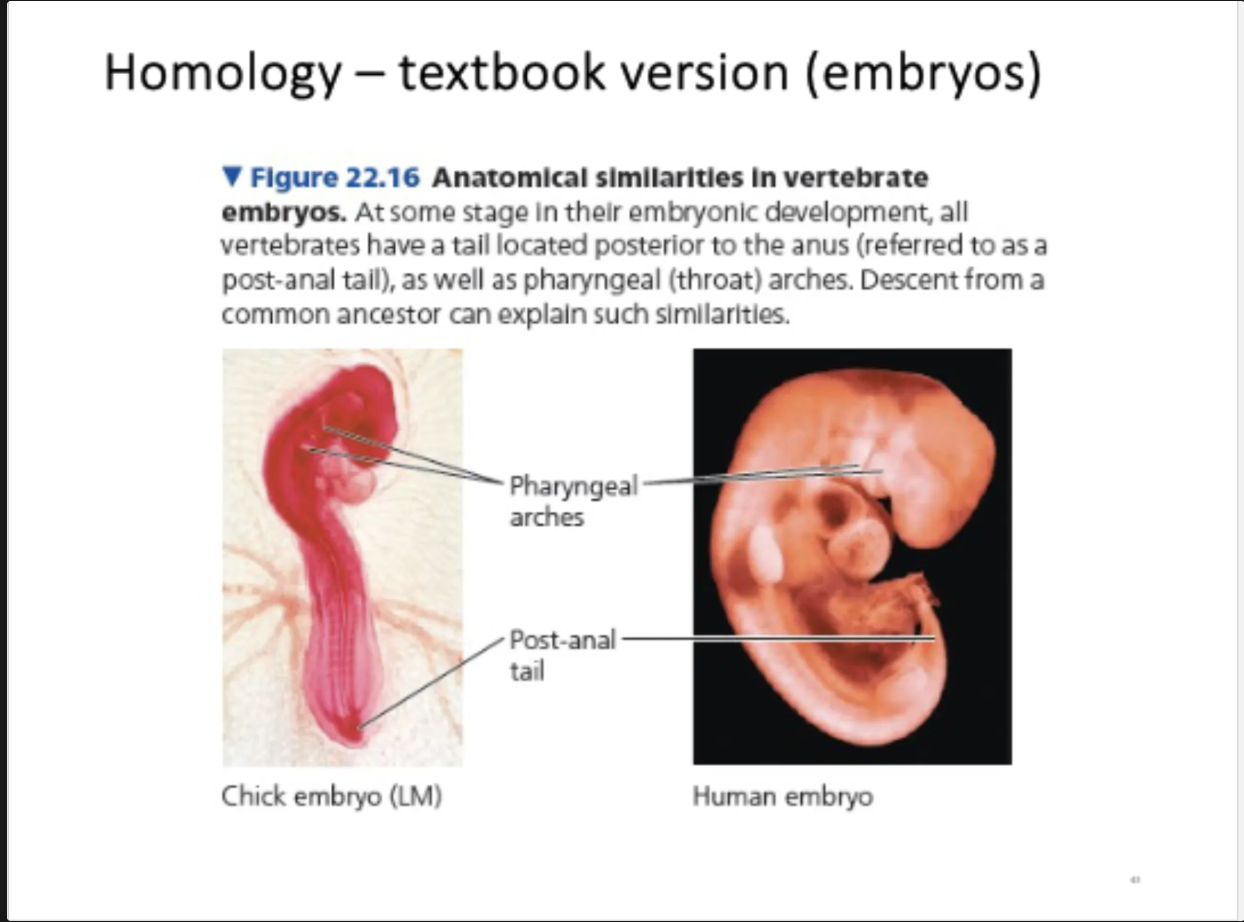
a chick compared to human.
early embryos are similer.
we both have post anal tails and pharyngeal arches.
embryoes look siiler than adults due to
copied form common ansester same basic vertibrate plan that has been then elobrated to produce the different adaptions, different organims that we see.
HOW TO INFER PHYogenic tree data.
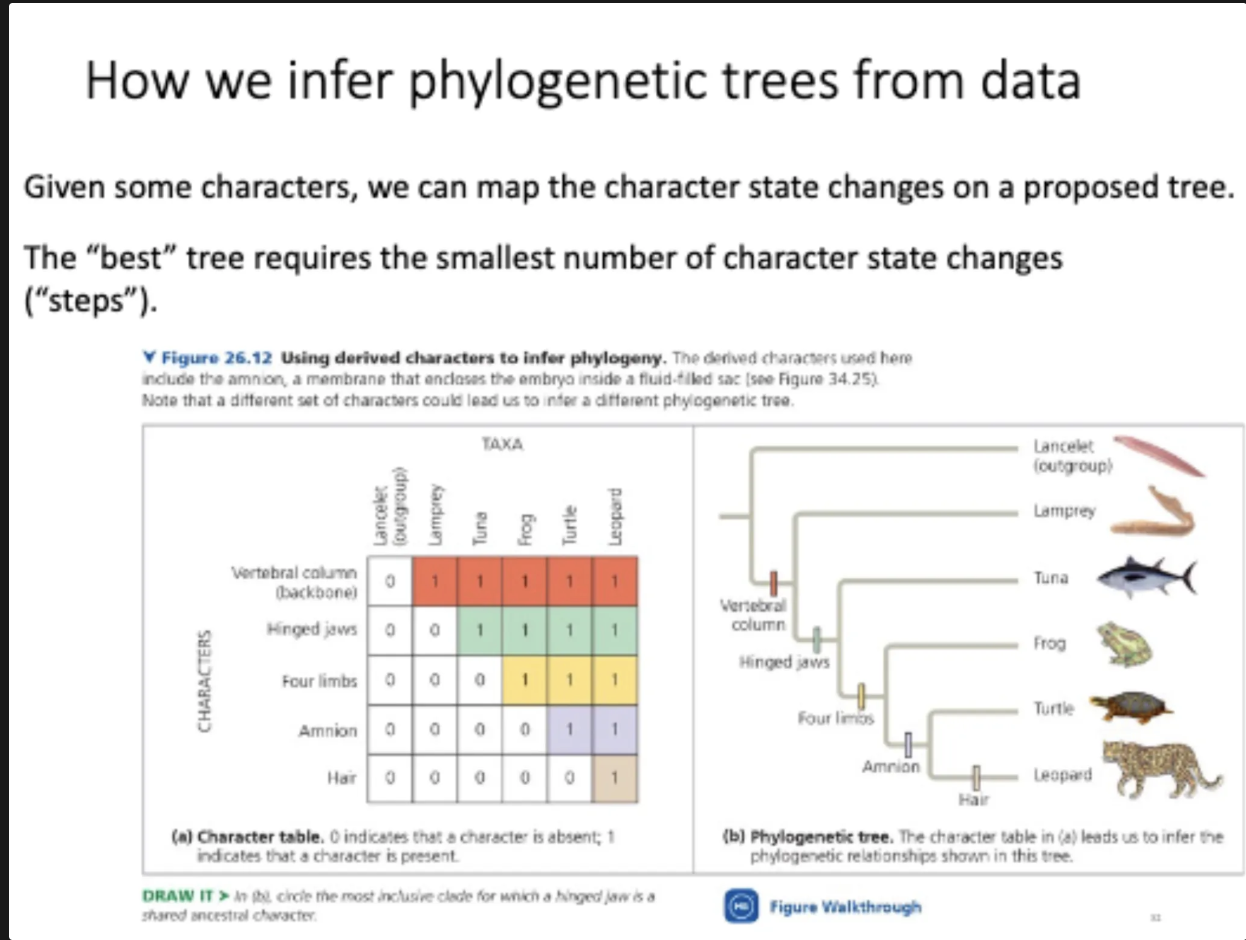
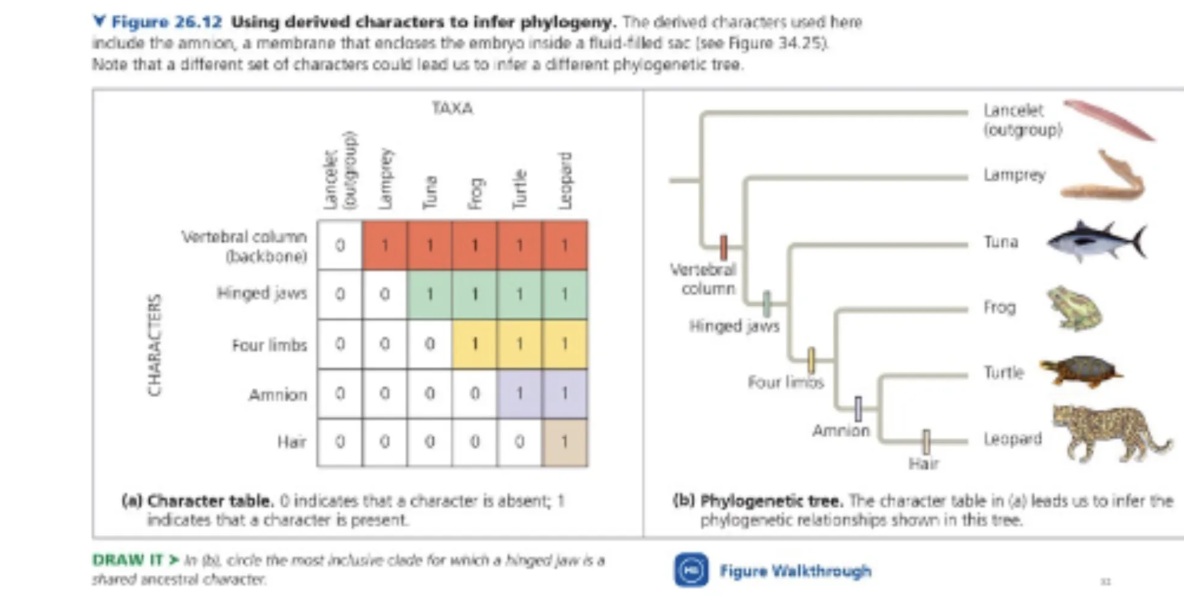
explain parosmoiance trees
the charactersitc common ones like hinged jaws are only appering once and is why its caled a parsomoiance tree.